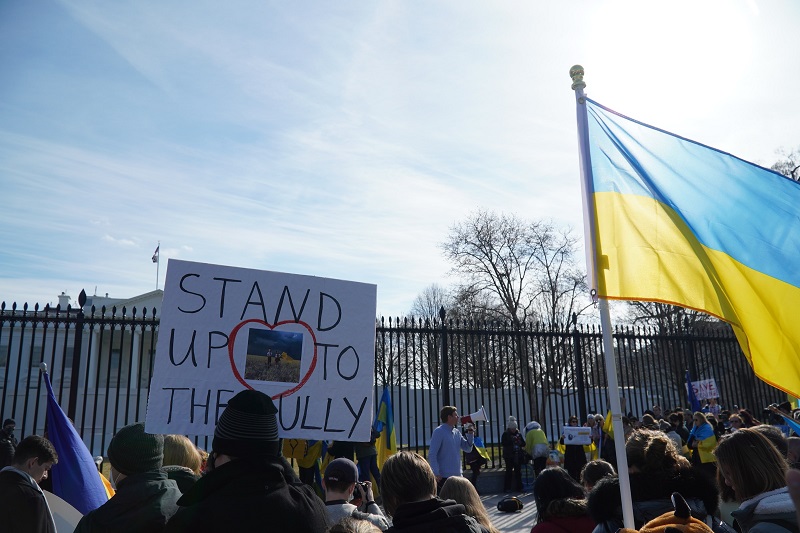
Potential results of Russia’s grave acts of ecocide will not respect borders
Robert Oppenheimer, the American physicist behind the world’s first nuclear weapons, quoted from ancient Hindu scriptures to describe his conflicting feelings about the power his science unleashed: “Now I am become Death, the destroyer of worlds,” he said.
In his later years, Oppenheimer longed for a future without war – something Ukrainians have grown cruelly familiar with, owing to an invasion by a nation with vastly superior resources. But while the memory of human loss is overwhelming, the country is facing another war, too.
Much of Ukraine is facing a destruction of habitat and nature on a scale that will reverberate far beyond its borders if global leaders fail to act now. While its almost impossible to measure, the scale of this damage must be understood to find effective solutions.
The war has introduced Ukraine’s natural reserves to terrible damage and pollution. Toxins regularly leak from its destroyed industries and infrastructure. Global food security is at risk amid high cost of living and worryingly high hunger levels across the globe.
Keep Reading
Nuclear Contamination Doesn’t Respect Borders
Today, experts fear an environmental disaster is looming at Ukraine’s Zaporizhzhia power plant that currently remains under Russia’s control. Visiting the plant in June, Rafael Grossi from the International Atomic Energy Agency described the situation there as “extremely volatile”.
Playing with nuclear energy risks environmental doom. Ukrainian intelligence has accused Russia of mining the power plant, either to destroy it before they leave or to stage an event they would try to pin on Ukraine, according to an opinion piece on The Guardian.
One day the gun shots will stop. Environmental safety is one of the vital priorities to construct lasting peace in Ukraine, as set out in President Volodymyr Zelensky’s peace plan. The 10-point strategy emphasised the protection of the natural environment.
Environmental reconstruction of Ukraine will need strong support from the international community. We must do all that is possible – even during the war – to prevent further environmental catastrophe or mitigate damage.




